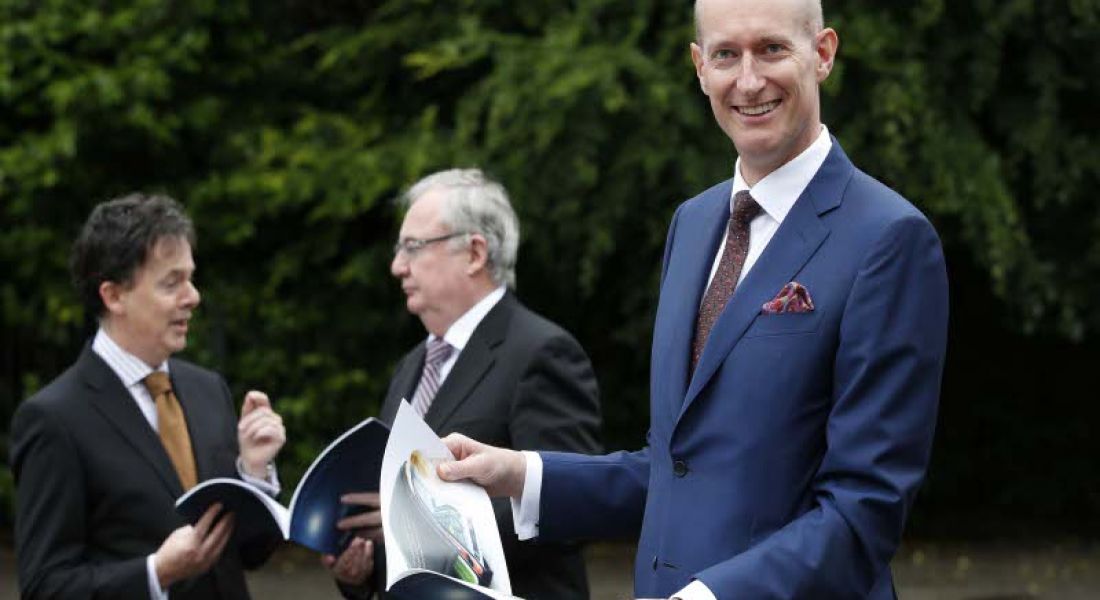Some 150,000 direct and indirect jobs are set to be created in the Irish digital economy as the value of online trading from these shores is set to surge to almost €22bn by 2020.
According to the Second UPC Report on Ireland’s Digital Economy the internet economy in Ireland employed the full-time equivalent of 49,000 people in 2012.
However, some 79,000 extra new jobs will be directly employed in the Irish economy and some 71,000 indirect jobs thanks to the rise of online fortunes for Irish businesses.
The value of Ireland’s internet economy is forecast to grow from its current level of €8.4bn to an estimated €21.1bn by 2020 with consumer spending contributing 60pc (€13bn) to this figure.
Currently €3.5bn of spending by voracious Irish digital consumers leaves the country every year, meaning Irish SMEs are letting business effectively walk out the door.
The report, compiled for UPC by research firm Amarach, found that while Irish consumers are beginning to enjoy broadband speeds ahead of the EU average, 47,000 businesses across the land still don’t have an online presence.
“At the moment some €3bn of online spending is going abroad every year and this is such a waste from an Irish viewpoint,” said UPC Ireland CEO Magnus Ternsjö.
“This will widen to €8bn by 2020 if we do not become more competitive in this area.
“There is a potential of 150,000 new jobs that will be created by 2020 if we concentrate our efforts on digital developments.
“We are seeing a complete transformation of Irish society into one that is constantly connected at home, at work and in every aspect of our lives.”
As well as getting their businesses online and be capable of online trading Ternsjö said that firms need also to be mindful of trends in flexible working and ensuring their workforces have increased tech literacy.
Digital momentum
According to the report some 30pc of broadband speeds in Ireland are higher than 30Mbps, compared with only 10pc in 2012. Internet traffic rates are accelerating from 30pc a year to 50pc per annum due to the increased number of connected devices in the home from TVs and tablets to smartphones and PCs.
Multiscreen usage in the home is at an all-time high, especially among 19pc of 16 to 24 year-olds.
“The question emerges as to which is the main screen in the home,” asked Gerard O’Neill of Amarach Research, “ is it the TV, the tablet or the smartphone.”
The research found that 74pc of people believe broadband is now more important than the telephone .
Another interesting finding is that the average adult in Ireland would expect to be compensated €130 a month to do without a home broadband connection, amounting to between €1,128 to €1,416 depending on the speed they would be doing without.
Skills necessary to trade in the 21st century
“Currently over €3bn a year is going abroad to online retailers and if that continues it will have a detrimental impact on Irish retailers in particular,” O’Neill warned.
He said that of those firms that do recognize the importance of trading online 53pc are influenced by online customer feedback, ahead of countries like Germany at 29pc. “62pc of Irish SMEs believe online feedback will play a more important part of their future.”
Businesses in Ireland believe they will achieve on average an extra 15pc in overall growth if they embarked on the right digital strategy. “56pc of SMEs are predicting more growth overseas and no doubt digital will facilitate that.”
In terms of the skills needed to profit in the digital economy, O’Neill said that businesses in Ireland believe there is a gap in the market for the digital marketing skills they will need.
Of these skills 66pc of SMEs will require analytics skills, 37pc will require social media skills, 41pc expect they will require programming skills and 34pc expect to require digital marketing skills.
Opening up economic opportunities
The Minister for Communications, Marine and Natural Resources Pat Rabbitte TD said he is very interested in the economic change and opportunities the digital economy presents for Ireland.
“The prospect of 150,000 new jobs is very exciting indeed.”
However, Minister Rabbitte said there is a clear opportunity for SMEs in Ireland to transact online.
“47,000 SMEs not having a web presence is a striking figure. It shows we still have quite a long way to go.”
Rabbitte’s department has been trying to influence change in this area through the creation of 2,000 online vouchers to stimulate businesses going online to transact as well as training up 100,000 people in basic digital literacy skills through the Benefit4 scheme.
“The big deficit is trying to accelerate the rate at which businesses will transact online.”
Rabbitte also pointed out that Irish parents are the highest users of parental controls and software in Europe.
He added that the Internet Advisory on Internet Content Governance headed by Dr Brian O’Neill has submitted its report ahead of time and will be brought to Government in the next two to three weeks and published immediately after that.




